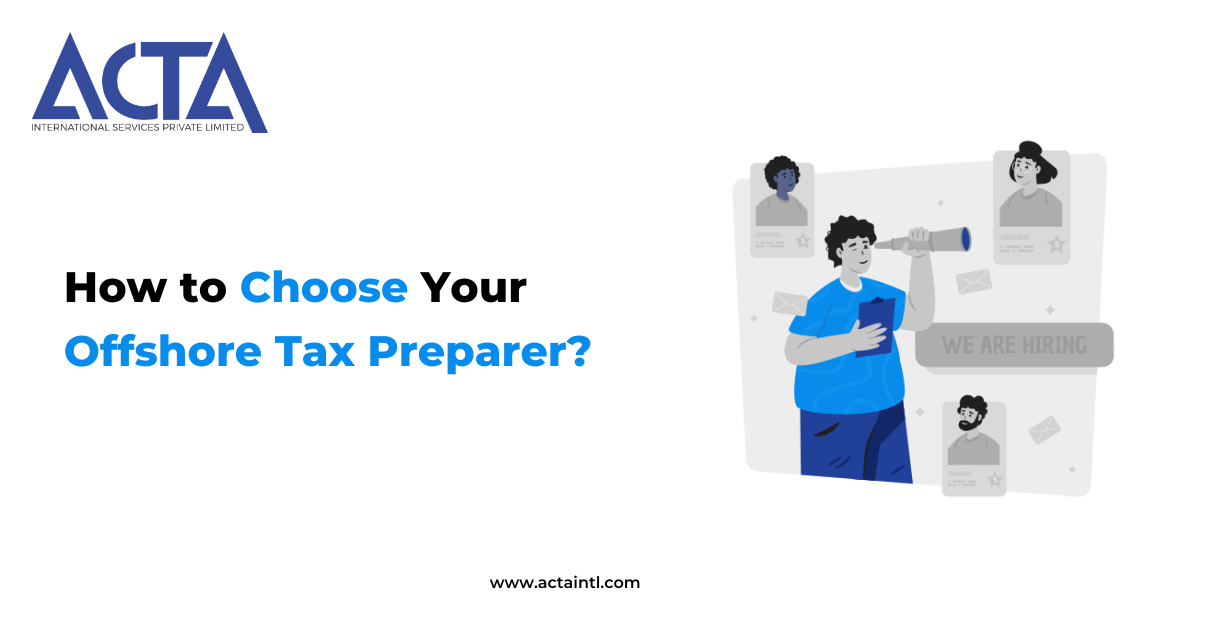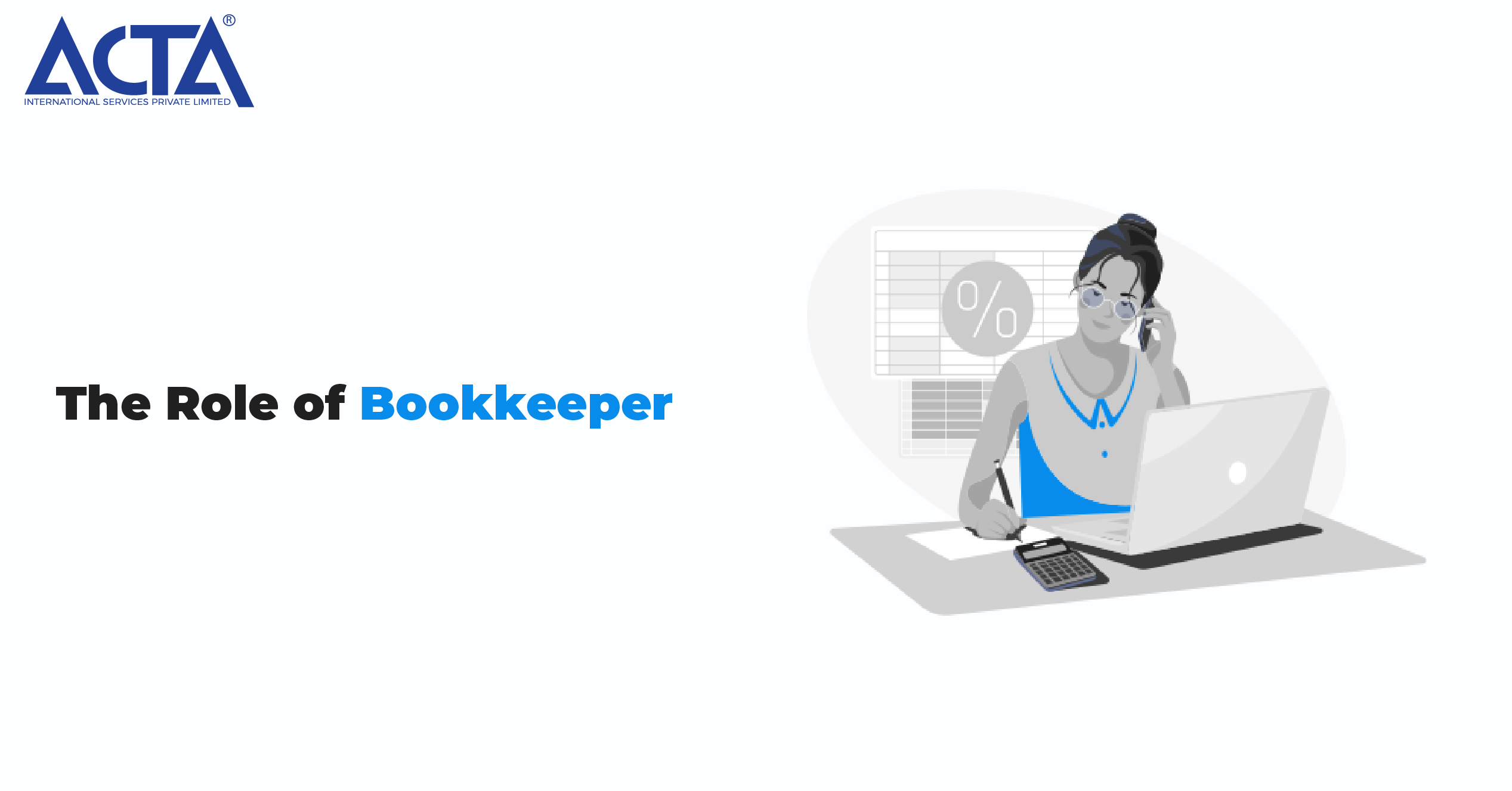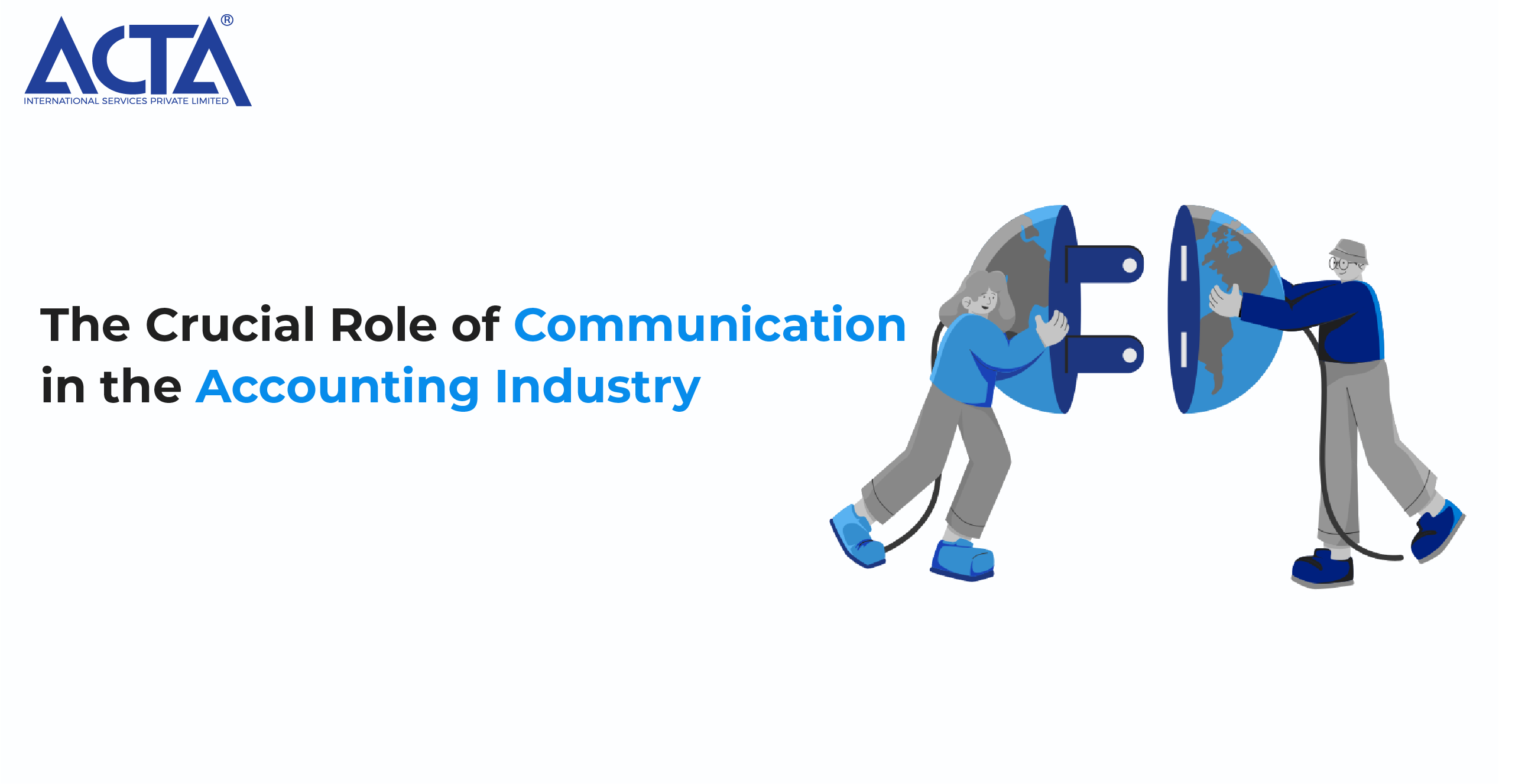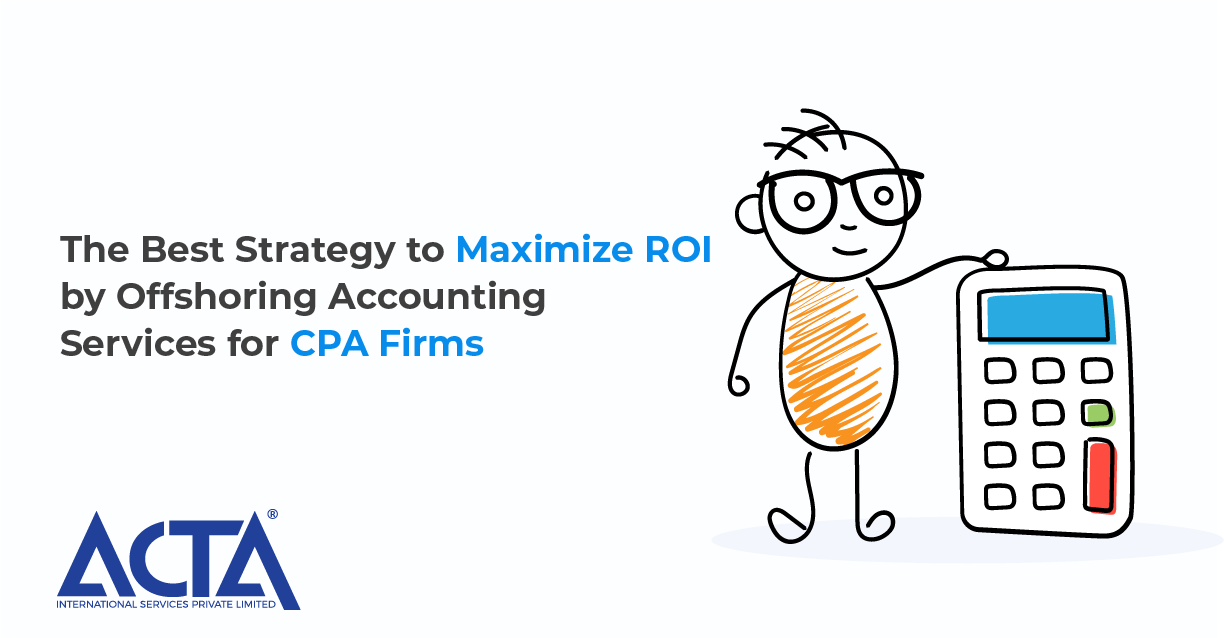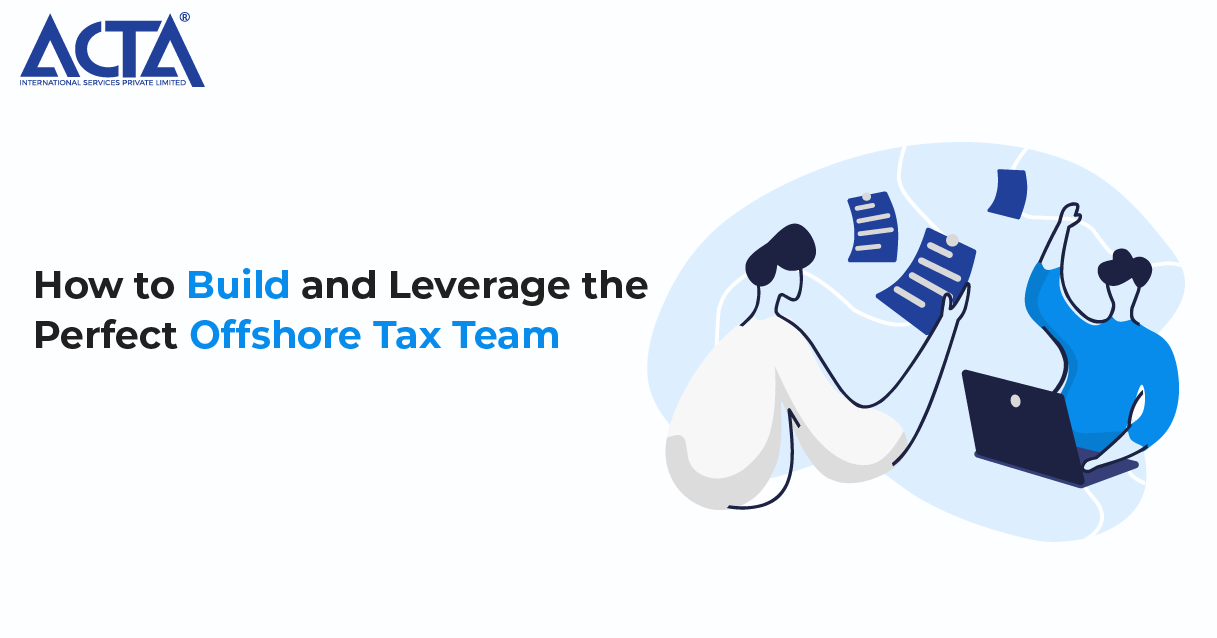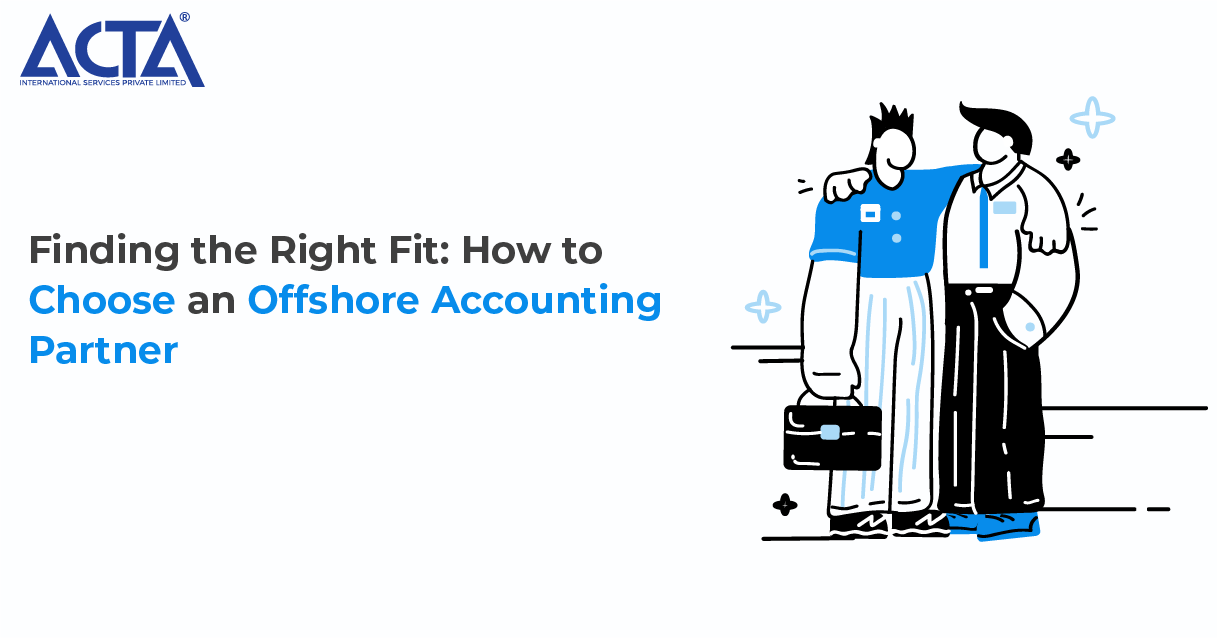
How to Choose the Right Offshore Accounting Partner
Mar 07, 2023
By KARTHICK SUBRAMANIAM
Offshoring has become a popular option for many startup and mid-sized CPA and accounting firms in recent years. One of the primary reasons for this is the significant cost savings that can be achieved through offshoring. Hiring local accounting professionals can be expensive, especially for small and medium-sized firms that are just starting out. By offshoring, these firms can tap into a wider talent pool and access highly qualified professionals at a fraction of the cost of hiring locally.
Another benefit of offshoring is infrastructure savings. Offshore partners typically provide the necessary infrastructure, such as office space, technology, and equipment, which means that firms do not have to invest in these resources themselves. This can lead to significant cost savings, as well as increased efficiency and productivity, as the offshore partner is responsible for managing the infrastructure.
Offshoring also allows firms to improve project delivery efficiency. By offshoring non-core tasks such as bookkeeping, accounting, and financial reporting to offshore partners, firms can free up their resources and focus on their core competencies. This can lead to faster project completion, better quality work, and improved customer satisfaction.
However, offshoring is not a decision to be taken lightly. It requires a strong commitment from both the firm and the offshore partner. Like a marriage, both parties must be fully committed to the partnership and work together to achieve common goals. Effective communication, trust, and mutual respect are essential for building a successful offshore partnership.
Selecting the right partner is essential to ensure success. Here are some steps you can take to assess and select the perfect accounting offshoring partner:
-
Balancing Size and Specialization:
When it comes to selecting a company to work with, it's important to consider both their specialization and size. The ideal partner should be large enough to handle your needs, but also small enough to provide personalized attention and prioritize your success. It's advisable to seek out a provider that specializes in accounting rather than a general outsourcing firm. If you choose a smaller vendor, it's preferable to opt for one that specializes in your specific area of interest, rather than a generalist.
- Flexible Business Models:
Offshoring can yield the highest ROI with long-term projects, not just short-term ones. Seek out partners who can accommodate both types of projects within standard timeframes. This allows for flexibility in transitioning from a temporary engagement to a committed offshoring model if the initial project is successful.
- Understanding Offshore Company Background:
- Experience and track record: Evaluate the offshore company's years in operation and track record of success to determine their level of experience.
- Client references: Seek out feedback from current or previous clients to understand their satisfaction level and success stories.
- Project management approach: Review the vendor's project management process and determine if it aligns with your expectations.
- Cultural differences: Consider cultural differences that may impact communication and working styles to ensure effective collaboration.
- Facilities and technology: Evaluate the vendor's physical infrastructure and technology capabilities to ensure they can meet your requirements.
- Transparency and communication:
- Transparency and communication are important factors to consider when hiring an offshore accounting partner.
- Lack of transparency can lead to miscommunication and delays in the partnership.
- Clear communication channels and expectations should be established from the beginning of the hiring process.
- Evaluating the vendor's communication capabilities and willingness to be transparent is crucial during the hiring process.
- Prioritizing transparency and communication can help establish a strong working relationship and set the foundation for a successful outsourcing project.
- Efficient communication is crucial for effective collaboration between the two teams. It helps in establishing a clear understanding of goals, expectations, and timelines, and enables timely resolution of issues and concerns.
- Clear communication ensures that the offshore team has a good understanding of the accounting laws, regulations, and standards, which is essential to avoid compliance issues and potential penalties.
- Effective communication helps in building a relationship of trust and transparency between the two teams. It ensures that both parties are on the same page and aligned towards the common goal of providing quality accounting services.
- Good communication practices can help in overcoming the challenges of working across different time zones, cultural differences, and language barriers
- Effective communication can also help in identifying and addressing potential communication gaps, which can lead to misunderstandings and errors in accounting processes.
- Communication is a critical component of successful offshoring partnerships, and investing in effective communication strategies can help ensure the success of offshore accounting partnerships.
- Workforce: Evaluating the Quality of Your Team:
When offshoring, one of the key benefits is that you can acquire the expertise you need without the hassle of recruiting and managing employees. However, it's still important to evaluate the quality of the individuals who will be working on your project, even if you're not responsible for HR tasks. To gather essential information, you may choose to request resumes from key personnel. In this stage, you should focus on gathering critical data by asking high-level questions as you wish.
- Essential Strategies for Data Protection
Security and data protection are critical for offshore accounting service providers, especially in the era of cloud computing. As accounting services are being outsourced to offshore providers more frequently, it's important to consider the following factors related to security and data protection when engaging with an offshore accounting provider
Reputation and Experience: Look for a provider with a proven track record and experience in providing accounting services to companies of similar size and industry. Verify their credentials, certifications, and industry memberships.
Security Protocols: Ensure that the provider has adequate security protocols in place to protect your data from unauthorized access, theft, or misuse. Ask about their security measures, including firewalls, access controls, encryption, backups, and disaster recovery plans.
Employee training: The provider should train its employees on security best practices and ensure that they understand their roles and responsibilities in protecting data.
Data Privacy and Confidentiality: Verify that the provider is compliant with data privacy laws and regulations, such as the General Data Protection Regulation (GDPR), if applicable. Ensure that the provider has policies and procedures in place to safeguard your confidential information and that they have trained their employees in data privacy and confidentiality.
Contractual Agreements: Ensure that the contractual agreements with the offshore accounting provider cover all aspects of security and data protection, including the rights and responsibilities of both parties, indemnification, limitations of liability, and termination clauses.
At ACTA International, we understand the critical importance of security and data protection for our clients. That's why we have obtained ISO 27001:2013 information security and ISO 9001:2013 quality management certifications, which demonstrate our commitment to implementing robust security controls and ensuring high-quality services for our clients. By partnering with an offshore accounting provider like ACTA, you can have confidence that your data is secure and protected.
- References in Selecting an Offshore accounting Partner:
References are extremely important for offshore accounting service providers as they allow CPA or accountants to gain insight into the provider's past performance, expertise, and ability to meet the needs of their clients.
Here are some factors to consider when evaluating references for an offshore accounting service provider:
- Industry Experience: Look for references from clients in your industry or a similar one. This will help you determine if the provider has the necessary knowledge and experience to handle your specific accounting needs.
- Quality of Service: Ask for references that can speak to the provider's ability to deliver high-quality services consistently. You want to ensure that the provider can meet or exceed your expectations.
- Communication: Check references to see how well the provider communicates with their clients. You want a provider that is responsive and can keep you informed about the status of your accounting work.
- Data Security: Inquire about data security protocols and ask for references that can speak to the provider's ability to keep sensitive financial information secure.
- Scalability: Consider references that can provide insight into the provider's ability to scale their services as your business grows.
FAQs



